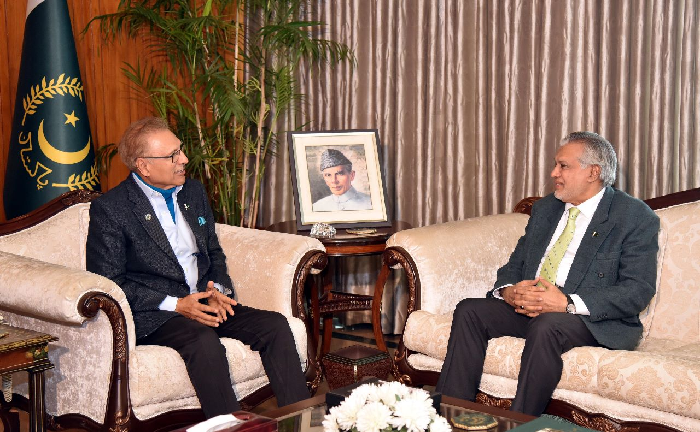On Tuesday, President Dr. Arif Alvi rejected the federal government’s request for approval of an ordinance that sought to impose new taxes to produce additional income in accordance with the IMF’s requirements to restart the $6.5 billion bailout package.
Ishaq Dar, the finance minister, contacted the president, according to a formal statement released by the White House, and informed him of the developments in negotiations with the IMF and the measures that had been agreed upon.
ریاست ِپاکستان حکومت کی جانب سے آئی ایم ایف کے ساتھ کیے گئے وعدوں پر قائم رہے گی، صدر مملکت
حکومت ایک آرڈیننس جاری کرکے ٹیکسوں کے ذریعے اضافی ریونیو اکٹھا کرنا چاہتی ہے، وزیر خزانہ
اس اہم موضوع پر پارلیمنٹ کو اعتماد میں لینا زیادہ مناسب ہوگا ، صدر مملکت pic.twitter.com/kTcpx9VctA
— The President of Pakistan (@PresOfPakistan) February 14, 2023
The minister explained that the government planned to enact an ordinance to increase tax income.
However, the President advised that it would be more appropriate to take the Parliament into confidence on this important subject and that a session be called immediately so that the bill is enacted without delay.
The government had already increased the electricity prices by Rs3.30 to Rs15.52 per unit to recover Rs237 billion more by June. Another burden of Rs189 billion would be passed on in the shape of an increase in taxes by June 2023.
Cumulatively, these three measures would force the people to cough up an extra Rs736 billion in just six months – a cost that had been increased due to the government’s failure to timely revive the IMF deal.
The administration will carry out its current obligations to raise petroleum levies. On March 1 and April 1, diesel taxation will increase twice, each time by 5 rupees per litre.
The Pakistani cabinet will consider and accept the IMF’s planned energy reforms. This would entail Pakistan eliminating all of its circular debt, a type of accumulated governmental debt brought on by subsidies and unpaid payments in the electricity industry.
